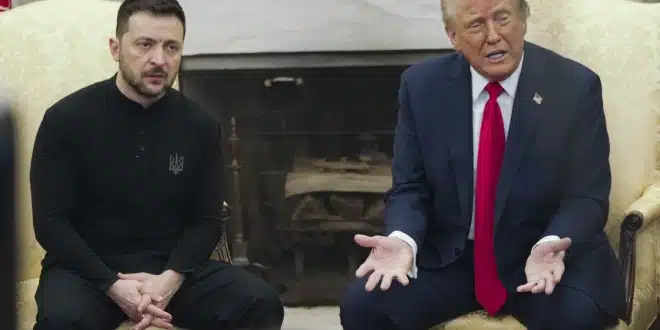In the early hours of July 4, 2025, Russia executed its most extensive aerial offensive against Ukraine since the onset of the conflict in 2022, deploying 539 drones and 11 missiles, primarily targeting the capital, Kyiv. The assault resulted in at least one fatality and 26 injuries, with significant damage reported across multiple districts. The attack occurred shortly after a phone conversation between U.S. President Donald Trump and Russian President Vladimir Putin, which concluded without any diplomatic progress.
Ukrainian air defense systems managed to intercept a substantial number of the incoming threats, yet the scale of the attack overwhelmed existing defenses. The Polish embassy in Kyiv sustained damage, though no casualties were reported among its staff. Residents sought refuge in metro stations as sirens blared throughout the night. The Ukrainian Air Force described the barrage as the largest since the war began.
President Trump expressed strong dissatisfaction with Putin’s stance during their call, indicating that the Russian leader showed no inclination toward ending the conflict. Trump mentioned that sanctions were discussed extensively and suggested that Putin understood further punitive measures might be forthcoming.
Following the attack, President Trump engaged in a separate call with Ukrainian President Volodymyr Zelensky. The two leaders agreed to collaborate on enhancing Ukraine’s air defense capabilities, including discussions on joint production and potential procurement of advanced systems such as the Patriot missile interceptors. Zelensky expressed gratitude for the ongoing U.S. support, emphasizing its critical role in safeguarding Ukrainian sovereignty.
Despite these assurances, the U.S. had recently paused shipments of key military aid to Ukraine, including Patriot and Stinger missiles, citing the need to replenish domestic stockpiles. This decision has raised concerns in Kyiv about the sustainability of its defense efforts amid escalating Russian offensives. European allies, including Germany, are exploring avenues to procure and supply additional defense systems to Ukraine to mitigate the impact of reduced American assistance.
The Kremlin, through spokesperson Dmitry Peskov, reiterated its preference for achieving its objectives via political and diplomatic means but affirmed the continuation of its “special operation” in Ukraine as long as such resolutions remain unattainable.


